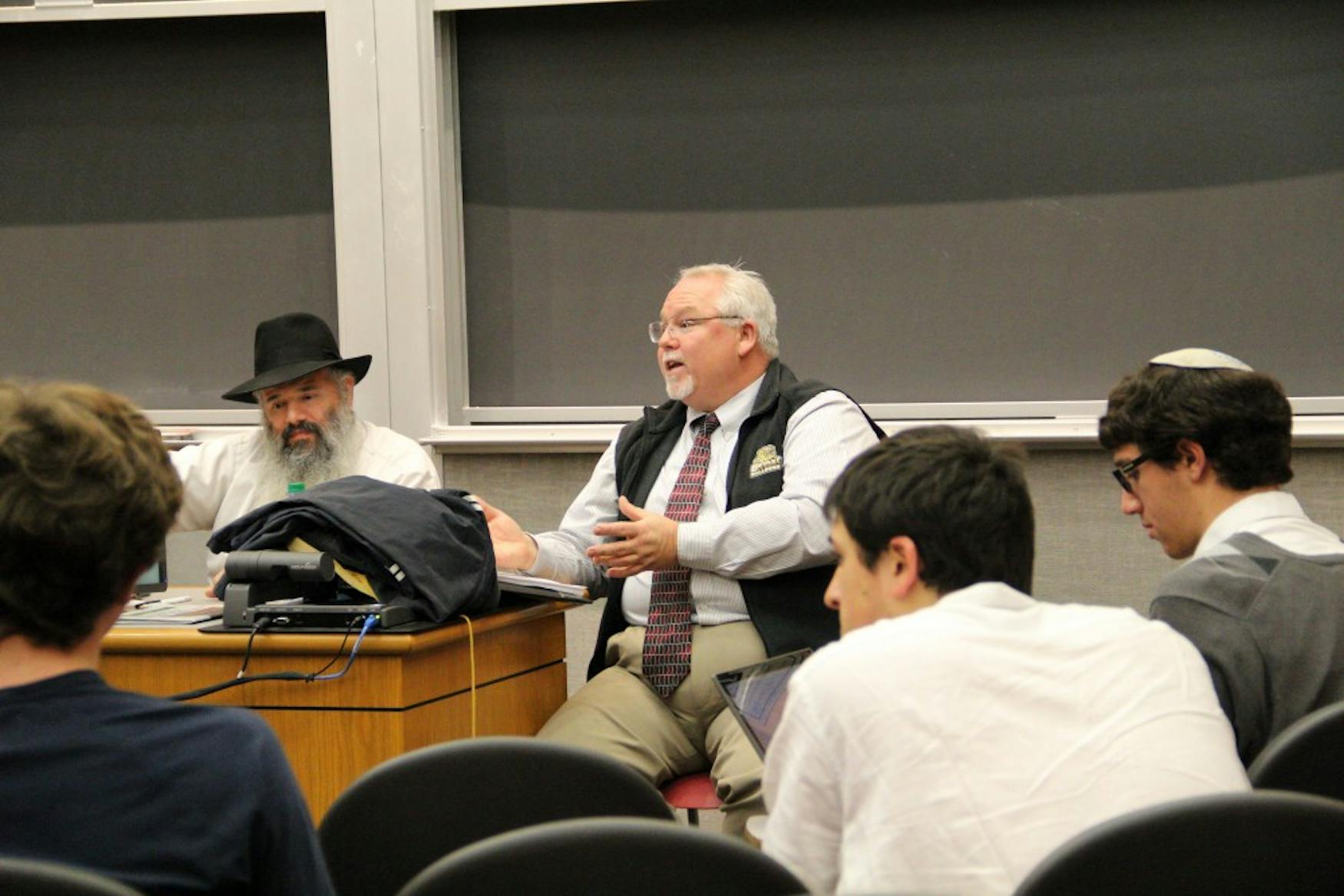Sodexo representatives discuss issues, progress
Students raised a number of concerns about the flexibility and cost of meal plans at a dining forum with Sodexo last Wednesday.
The Senate Dining Committee sponsored the forum so that students could discuss their concerns directly with Sodexo management. The Sodexo representatives present included General Manager Shawn Monaghan, Senior Director of Operations Randi Kates-Peirce and Rabbi Chayim Zirkird. Brandeis’ Vice President of Operations James Gray was also in the audience to answer questions. The Chair of the Senate Dining Committee and Class of 2017 Senator Ben Margolin moderated the discussion.
Monaghan started the discussion by giving his “sincerest apologies” for the difficulties Sodexo faced in the beginning of the year. “It’s not the way we wanted it to go,” Monaghan said. However, he stated that Sodexo has made ample changes in food quality and availability since the start of the school year and hopes that having more open conversations with students will help them improve even more in these two areas.
Katie Blocklove ’16 brought up concerns about the price of meal plans and the number of options available for students. She said that the 12-meal plan is the only plan that “makes sense for students” because the others are “much less flexible.” For example, she said that in her own cost calculations, the eight-meal plan charges about $15 per meal, which is more than the other meal plans. She suggested that there be fewer meal plan options and, in particular, ones with less meals and more dining points to allow students to get a better value for their money. She also mentioned that many students dislike the fact that use of meal swipes is restricted to dining halls only and that many students missed the meal equivalencies from last year, the method in which students could use meal swipes not only at dining halls but at various locations across campus for a certain number of items.
Gray responded that the University took away the meal equivalency method because it “didn’t work economically” and that Sodexo had to implement what they saw as the most economically feasible system. While Sodexo and the University “try to meet students’ needs in every way possible,” he said, there are limited resources and money to make that happen.
However, Gray said that even though bringing back meal equivalencies was unlikely, the University is looking to change the meal period system to make it easier for students to use more meals throughout the day. “The three-meal period is excessively restrictive,” Gray said. He said that the University is looking at a system of four or five meal periods throughout the day, which will allow students to swipe meals more often and therefore have more flexibility. Gray stated that this system would be implemented at the beginning of next semester at the very latest.
Two students from the recently recognized club called the Food Recovery Network, Matthew Schwartz ’15 and Jane Qian ’15, said that their club seeks to donate uneaten food from campus dining halls to those in need. They questioned the Sodexo management about the amount of leftover food after mealtimes, what happens to it and if it could be donated to their club’s cause. Monaghan responded that because Sodexo carefully tracks how much food is eaten daily and tries to make the minimum amount possible to meet student’s needs, there is limited waste, but she said that he is open to having a bigger discussion about the leftover food at a later date.
More student suggestions included adding more grilled chicken in Lower Usdan, a spice bar that offers herbs and various seasonings, more sweet potato fries, a Sriracha sauce pump and themed dinner nights, all of which Monaghan said Sodexo would look into trying to implement as soon as possible.
Gray, Monaghan and Kates-Peirce all said that many changes have been made in the past few years from student suggestions, such as the creation of a “second Sherman” in the renovated, buffet-style Usdan Dining Hall, an increase in food variety and the addition of a Dunkin Donuts on campus. They said more changes will continue to be made to meet students’ needs and that they hope more forums and discussions will be held in the near future as a medium of discussion.
Margolin said in an interview with the Justice that while he would have liked a bigger turnout at the forum, he thought the dialogue was “very positive.”
“The majority of students on campus have an opinion when it comes to dining services,” Margolin said. He explained that the Brandeis University Senate Dining Committee Facebook group, which was created in 2012, did not seem sufficient enough to address all student complaints. The forum, therefore, was held as a more effective way for students and management to address grievances in person. Margolin said that he thought the forum was a success and that he looks forward to holding more forums in the future to get more feedback from students on what needs improvement.




Please note All comments are eligible for publication in The Justice.